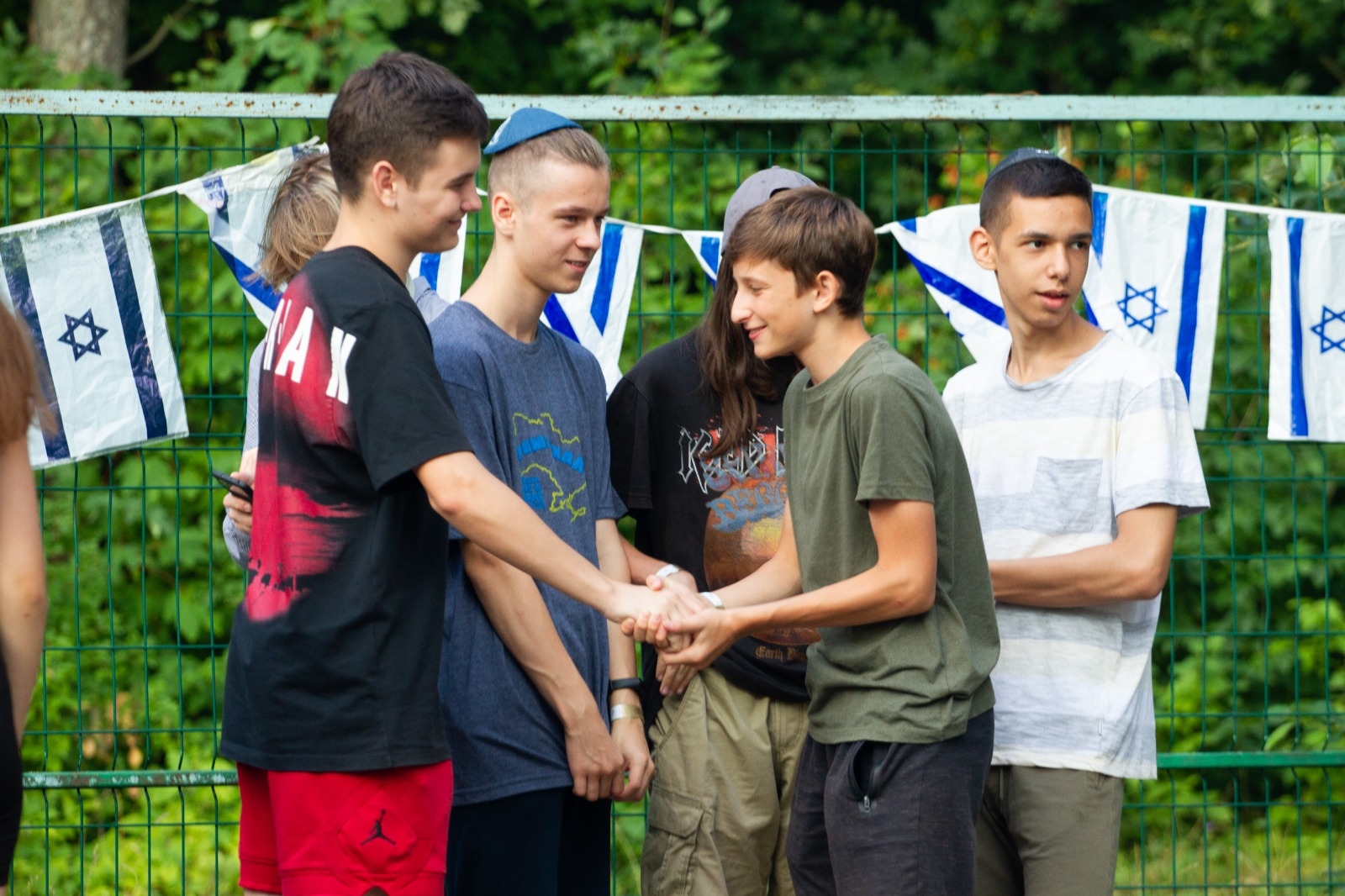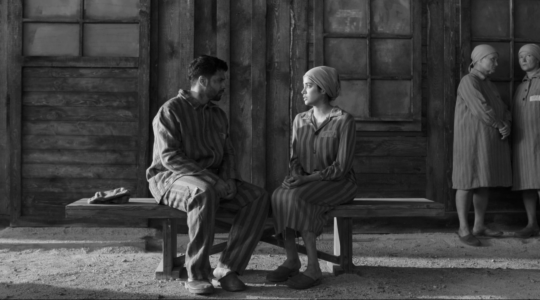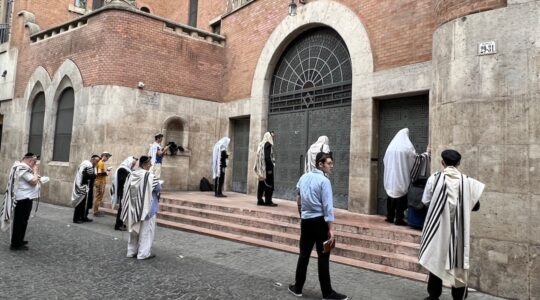(JTA) — Ramah Yachad, a Ukrainian Jewish summer camp, celebrated its 30th anniversary last year in exile, having relocated to Romania following Russia’s invasion of Ukraine that February.
This year, the camp is back in its longtime home in the Chernivtsi region of western Ukraine — a move that camp leaders said was both pragmatic and symbolic.
“In the beginning of the war, we were so scared to do it even in the safe areas of Ukraine,” Rabbi Irina Gritsevskaya, the camp’s director, told the Jewish Telegraphic Agency. “But this year, we decided to come back because many kids couldn’t get out of Ukraine. Not all the kids have passports.”
Returning to Ukrainian soil has also strengthened the camp’s sense of purpose, according to counselor Lena Grebelnaya.
“This year, it is more special because we are still here in Ukraine with the kids,” Grebelnaya told the JTA. “We have some challenges here because there are [air raid] alarms, but apart from that, we try to make this period joyful for the kids. It’s important for them to know that there’s still joy in life.”
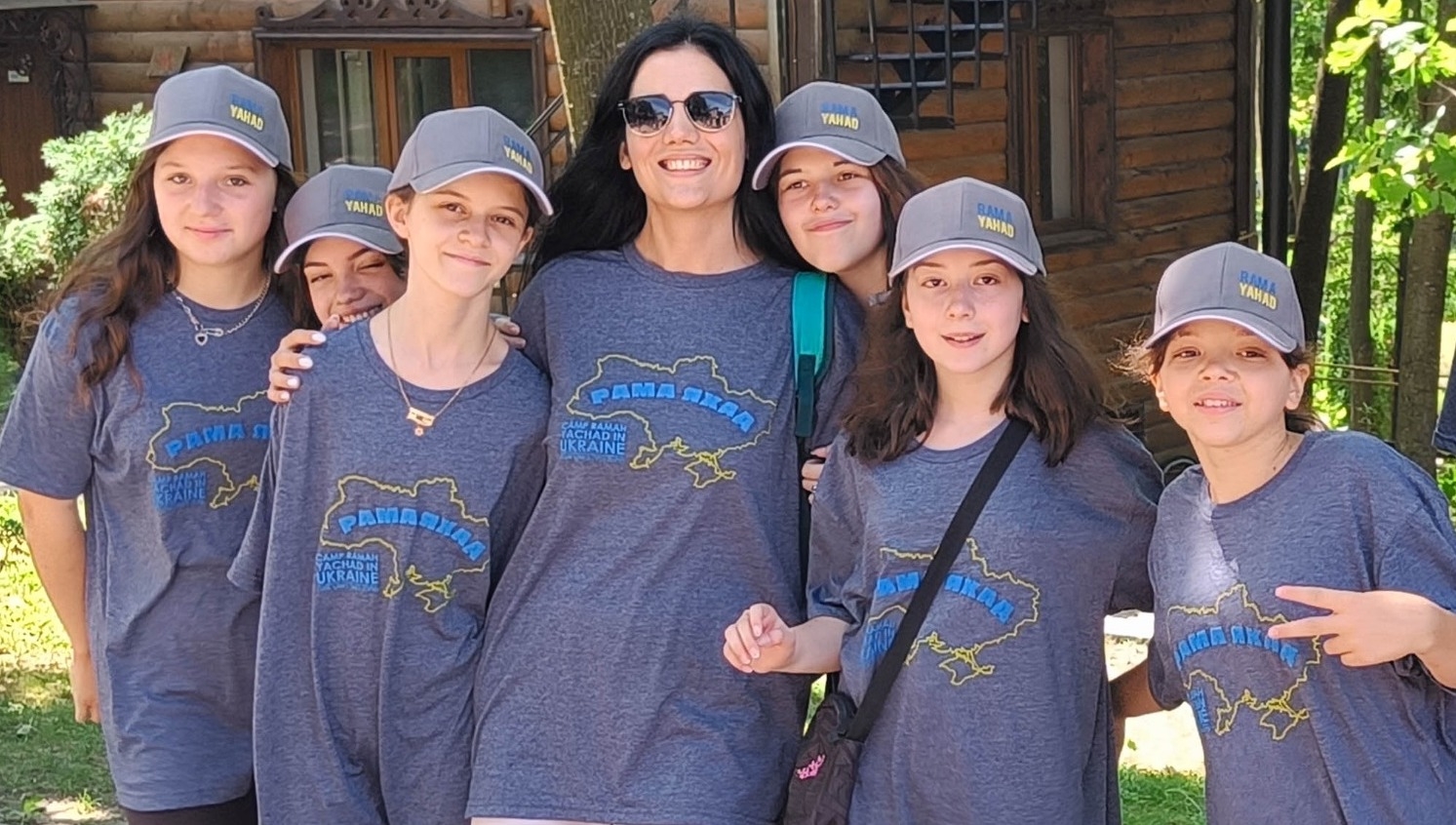
Campers and a counselor at Ramah Yachad pose in their 2023 T-shirts, showing an outline of Ukraine for the first session in the country since Russia invaded in 2022. (Courtesy Midreshet Schechter)
Among those who made the trek to Ramah Yachad is 16-year-old Daniel Prichodko. Before the war, he saw friends every day at his Jewish school in Kharkiv. Then his city, about 25 miles from the Russian border, came under brutal and unceasing bombardment. Now his friends have left Kharkiv, his family is battling an economic crisis and Prichodko’s school meets only on Zoom.
On July 28, he joined 122 other children between the ages of 8 and 17 at Ramah Yachad, operated as part of the Masorti movement’s activities in Ukraine. There, the campers whose childhood has been robbed by war are spending 12 days playing, studying and celebrating Jewish traditions together.
Their days start with a “boker tov” (or “good morning” in Hebrew) along with singing and dancing, followed by morning prayers, then “peulah” (learning activities) and “chugim” (recreational activities such as arts, sports, cooking and dance classes).
Prichodko said being surrounded by Jewish peers and teachers again feels like “being at home.”
“Since I study in the Jewish day school, before the war we had morning prayers, holidays, Hebrew classes,” he said. “Since the war started, we are learning online. Celebrations are more difficult and sometimes impossible. The level of education is not the same.”
Inevitably, there are some changes at Ramah Yachad this year too. Although it is held near Chernivtsi, a city spared from the missiles razing Ukraine’s eastern, central and southern regions, the camp is ready for air-raid sirens.
“We prepared a shelter where we can take all the kids,” Gritsevskaya said. “We even prepared surprises there. We bought candies to wait for them, so each kid gets a candy at the entrance.”
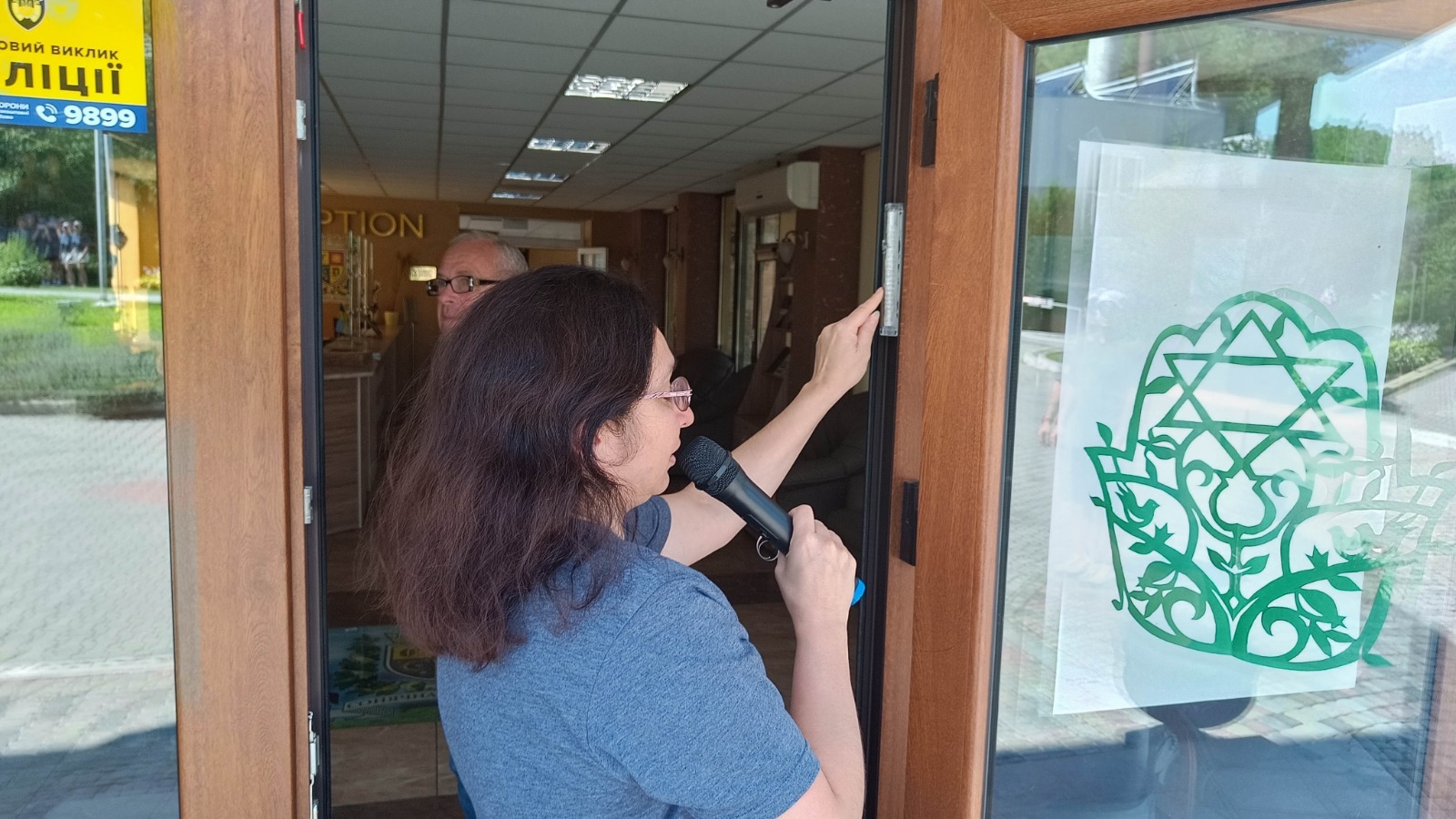
Rabbi Irina Gritsevskaya affixes a mezuzah to a building at Ramah Yachad in Ukraine at the start of the 2023 session. (Courtesy Midreshet Schechter)
A staff psychologist also works constantly with the campers, who struggle with fear and stress.
The past 18 months have ruptured every aspect of Ukrainian children’s lives. Along with the loss, violence and terror of war, many have lived through economic devastation. The proportion of children living in poverty has nearly doubled from 43% to 82%, many of them among the 5.9 million people displaced within Ukraine, according to UNICEF. Shelling and airstrikes have disrupted their access to electricity, water and basic health services. Their education has also suffered, compounding two years of schooling interrupted by the COVID-19 pandemic and over eight years of turmoil for children in eastern Ukraine.
These broad threats to their wellbeing have culminated in a mental health crisis, with UNICEF estimating that 1.5 million children in Ukraine are at risk of depression, anxiety, post-traumatic stress disorder and other psychological issues.
“The war changed me drastically,” said Hannah Prizcher, a 15-year-old Ramah Yachad camper from Kyiv. “I started to fear loud sounds and sometimes I am scared to be outside. In the midst of the war I decided to pray every morning, and to light Shabbat candles.”
This is Prizcher’s first year at camp, and she has already made new friends.
“I love the dancing in Ramah Yachad, the activities and ‘laila tov’ [‘good night’], ending the day together with my group,” she said.
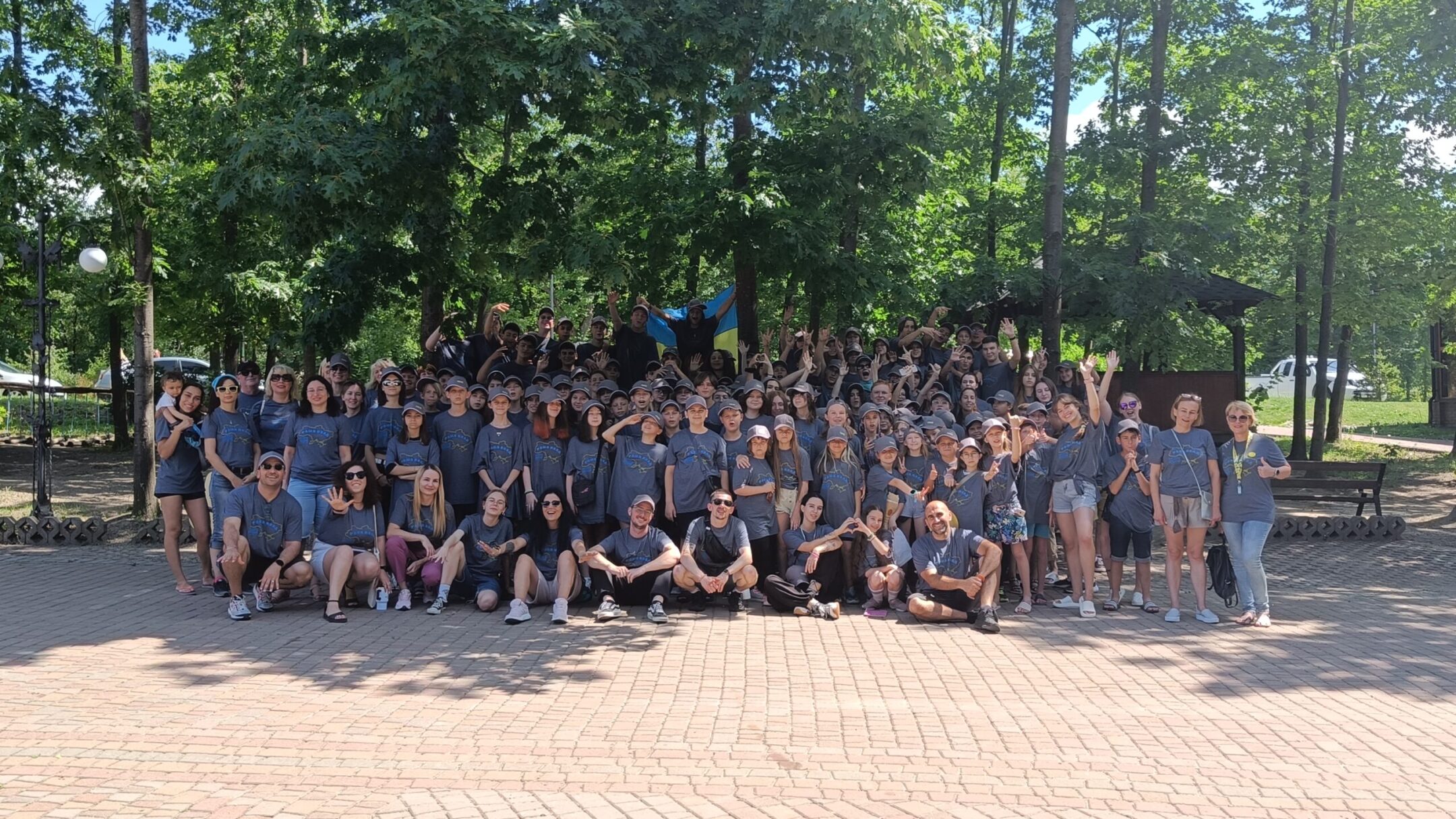
Over 100 campers traveled to Ramah Yachad’s Ukraine campus for the 2023 session, after a year’s war-induced interruption. (Courtesy Midreshet Schechter)
Getting to camp was not simple for everyone. Some children, like Prichodko, traveled from dangerous areas such as Kharkiv. Without the possibility of airplane travel, the train journey from Kharkiv can take two days.
But their country’s instability did not deter the campers. Instead, after serving just 80 campers in Romania last year, Ramah Yachad saw heightened demand this summer, reaching its usual capacity just a week after opening registration. The campers have always received varying degrees of financial aid — in a normal year, most families could cover about 25% of attendance costs, Gritsevskaya said — but since the war broke out, they rely almost entirely on stipends provided through donations.
“We had a long waitlist,” said Gritsevskaya.
As the director of Midreshet Schechter, an initiative of the Schechter Institutes in Jerusalem, she has traveled from her home in Israel into Ukraine several times since the war’s start to facilitate Jewish observance and experiences.
“In times of trouble, people care about being together and they realize how important it is,” she added. “For many of those kids, it’s really two weeks to breathe freely.”
Victoria Maksymovich is a first-year counselor joined by her son, a second-year camper. “We came to not think about the war,” she said. “My son is really happy here.”
Like other camps in the Ramah network, Ramah Yachad strives to show children that they are part of a global Jewish community, according to Gritsevskaya. Many of its activities are designed to foster a connection and identification with Israel, including classes on Hebrew language, Israeli society and the Israeli army, some taught by Israeli staff. (Israel saw an influx of 15,213 Ukrainian refugees last year, along with 43,685 Russians, according to the Jewish Agency.) Midreshet Schechter sponsors the Zionist programming in partnership with Masorti Olami, which represents Conservative Jewish communities worldwide.
“It’s very important for me that the kids remember we are one Jewish family and we will never leave them alone,” said Gritsevskaya. “It’s important that they have this joyful Jewish experience of Shabbat, of Shacharit [morning prayers], that they can carry with them throughout the year to hold them safe — psychologically, not only physically — even if it’s hard for them right now to be Jewish in their places.”
